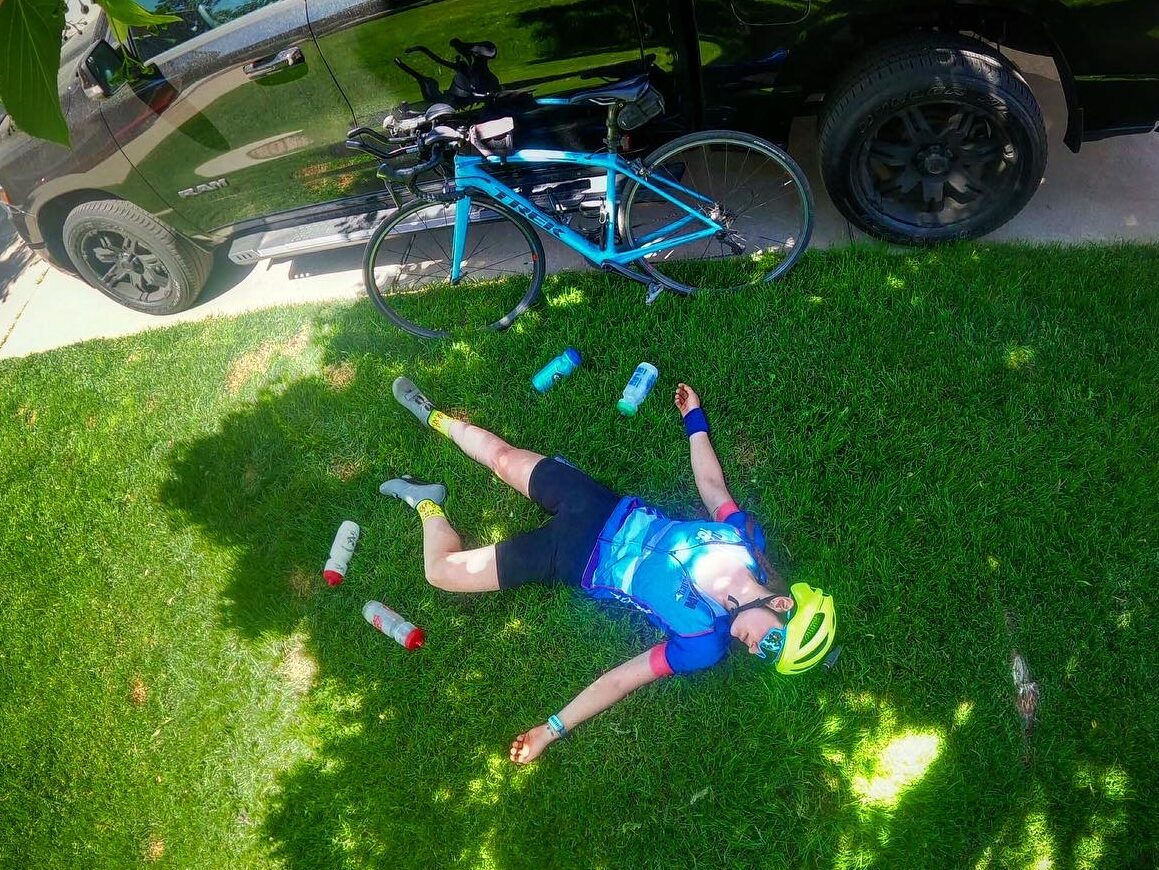
Before we get into the signs you need a rest day from your training, let’s talk about what rest days actually are.
A common mistake I see athletes make is taking a “recovery” day that still includes some form of training and calling it a “rest” day.
Maybe you did an easy swim, or a super easy bike, or no swim/bike/run but a strength training session.
Recovery days (when training is very light) are extremely beneficial and it’s good to schedule them between harder sessions, but don’t conflate active recovery with straight up rest.
Swimming is not rest. Easy cycling is not rest. Strength training is not rest.
Rest is rest.
“But I never get injured,” you say. Or, “I never feel burned out.”
Quite honestly, you’ve been lucky. And the more you delay full rest, the more you’re pushing your luck.
Not to mention, you may FEEL pretty good, but ever wonder about the potential you could be missing?
Remember, rest is when your muscles actually repair and get stronger. You could be pretty good at bouncing back quickly from training, but you’re missing out on what might happen if you let that repair process fully play out.
You could be feeling even BETTER during your workouts if you took full rest days. And you won’t realize it until you try it.
How often you take a rest day depends on how intense your training schedule is, how many recovery days you have, and other individual factors, but once a week is a good recommendation for many athletes.
Now, you don’t have to spend your entire rest day on the couch. You can go for a leisurely walk. You can do gentle yoga, or some light mobility and stretching. In fact, these can be helpful, as opposed to limiting movement and causing tight and stiff muscles.
Rest doesn’t mean as little movement as possible, but it does mean you take a day away from the pool, bike, running shoes, and weights.
Now that we’ve established what rest days are, let’s look at some signs that it might be time to take one.

1. You never take rest days
This one’s more preventative. There might not be a clear sign that you need to rest, but you don’t ever take them, so you’re pushing your luck as I described above.
Schedule them in regularly to avoid many of the signs you’ll read about next.
2. You haven’t been sleeping well
One or two nights here and there of crappy sleep is okay. You might be able to get up and push through your workout anyway, as long as you feel up to it and you know you’ll be able to catch up on sleep the next day.
But if you’re consistently getting fewer than 7 hours of good quality sleep, it’s going to start to negatively affect your workouts.
Less sleep means less recovery. Your body hasn’t had a chance to get ready to work hard again. You’ll likely notice this in your workouts through poor performance and struggling to hit your usual times or targets.
Take a day off to catch up on sleep. Consider what small changes you can make to your habits and sleep schedule, so you can continue to train and recover properly.
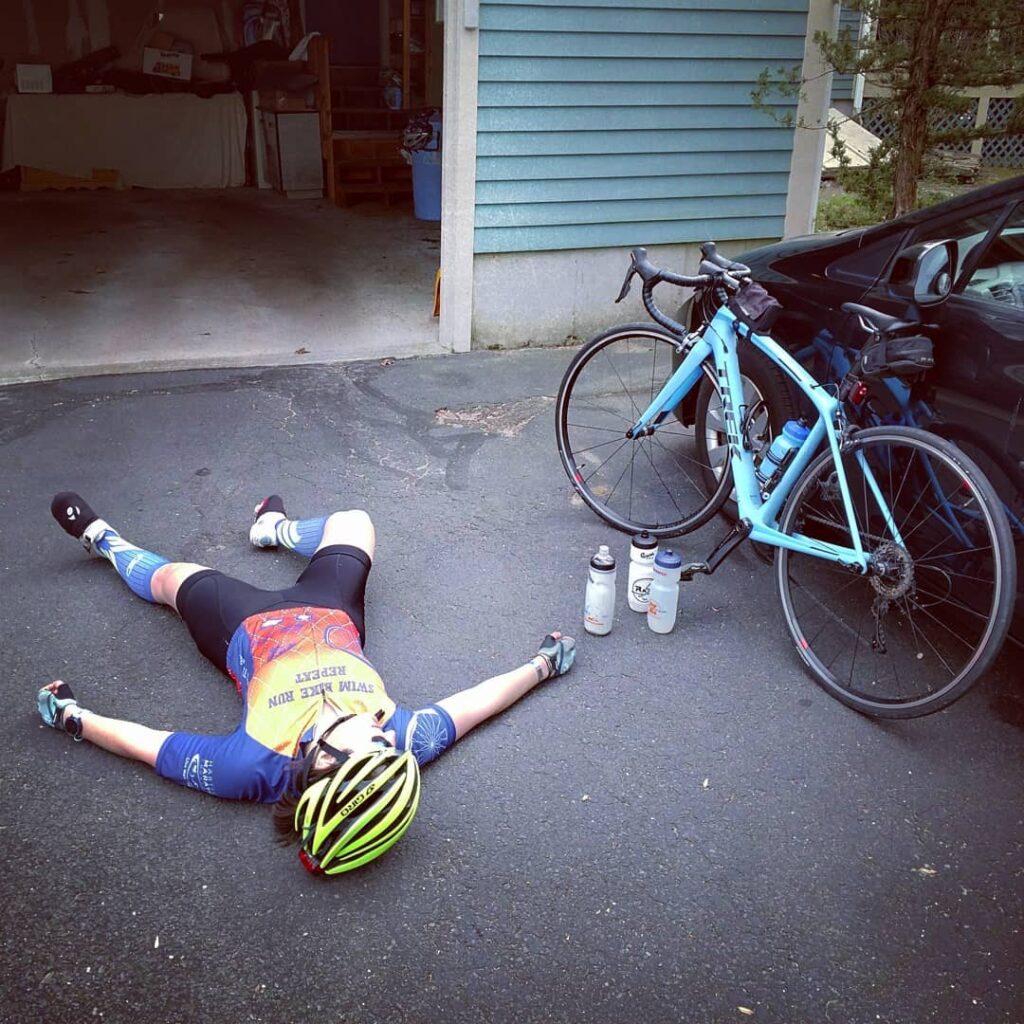
3. You’re super sore
As an athlete, you’re going to be sore some of the time. In many cases, a lighter recovery day might suffice.
But if you’re REALLY sore, your body might benefit from a full rest day rather than trying to push through it.
For example, if you just started lifting heavier and you have DOMS (delayed onset muscle soreness) so bad it takes a full 10 seconds to lower yourself to the toilet seat, rest is probably better than trying to go for a run.
4. You’re sick or you keep getting sick
If you have something like a minor cold that’s only affecting the area above the neck – runny nose, sneezing – a light workout might be fine as long as it doesn’t make you feel worse.
If your symptoms are below the neck – a bad cough or chest congestion – or if you have a fever or bad body aches, working through it is only going to make it worse.
When in doubt, take a rest day if you’re sick. Pushing through will only delay your body’s healing process. You might end up having to take several days off if you try to continue.
If you keep getting sick, that’s another sign you’re pushing too hard in your training. Take a look at your workouts, your schedule, and your current frequency of rest days. See what needs adjusting so you can stay healthy and continue to train.
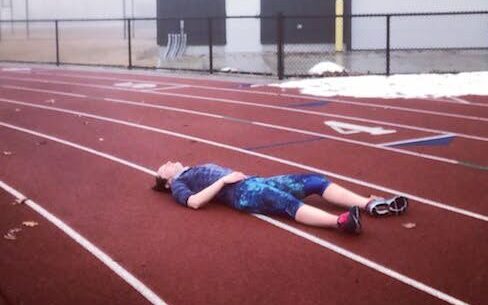
5. You’re injured or have a “niggle” that isn’t going away
If you feel a niggle during a training session, pay attention to it.
Do you still feel it after you warm up a bit?
Does it get worse the more you train?
Does it persist in the hours after your workout?
If the answer to any of these is yes, don’t work out, and visit a physical therapist to see what’s going on.
Again, trying to work through it can make it much worse. Pushing through because you don’t want to miss a day could turn into missing weeks or even months if it turns into a full-blown injury.
Like illness, if you’re consistently getting injured, that’s a red flag. You could be overtraining, not eating enough to fuel your training, or not recovering properly. Assessing your schedule and your habits, and working with a sport and/or nutrition coach, can help you determine how to move forward.
6. Your resting heart rate is elevated
If you wear a watch that measures your heart rate through your wrist, you have this data already. If not, you can always take your pulse daily, like when you first wake up, to get a sense of where you’re at.
Having a consistently elevated resting heart rate could be an indicator that your body isn’t recovering well from your workouts, and you need a break.
7. You feel exhausted all of the time
If you’re so beat throughout the day you have a hard time focusing on work, life, or just getting off the couch, you may need a rest day.
First, analyze other factors like your sleep and your nutrition. Are you rested enough? Are you fueling enough for your workouts?
If you’re fairly confident you’re on the mark for those factors, consider taking a rest to let your body recover.
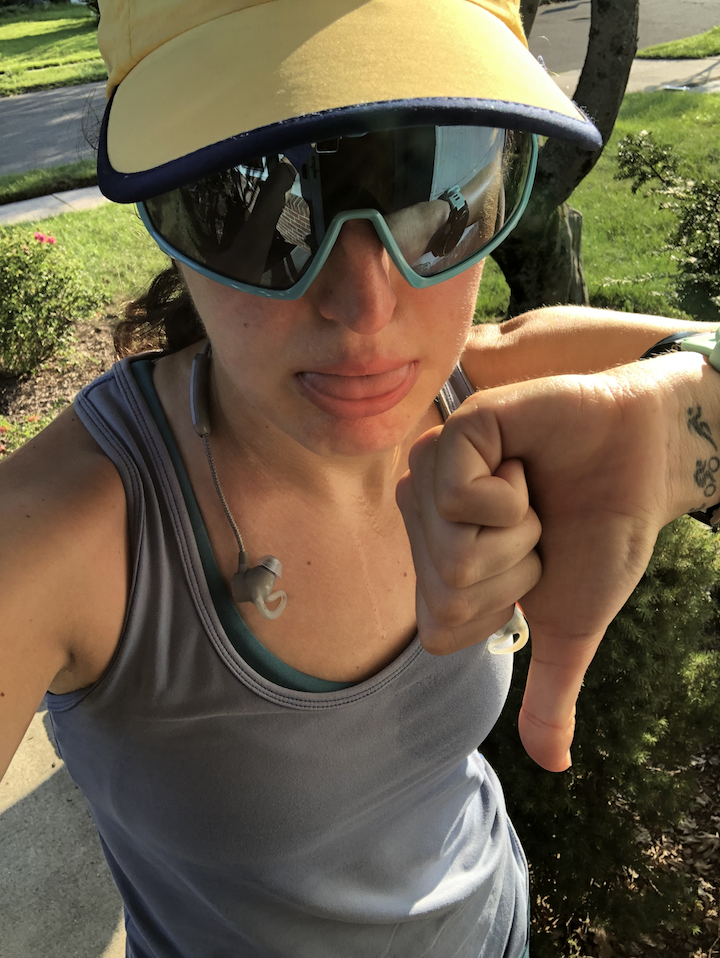
8. Your workouts consistently feel much harder than usual
First, not every workout is going to feel great. Some of them are going to suck.
It could be a one-time thing. Maybe you didn’t sleep enough one night, or you’re dehydrated or hungry, or still wiped out from yesterday’s workout.
But if you have multiple crappy workouts in a row, you might need to take a rest.
Remember, rest is when you get stronger. If you’re constantly stressing your body through your workouts but don’t give it the time it needs to bounce back through rest, you won’t progress. In fact, your performance will decline.
Are you continually struggling to hit times or paces you usually hit?
Is your heart rate higher than usual during your workouts?
Do you feel like your rate of perceived exertion is higher for the same workouts or routes?
You may be working yourself too hard with no chance to recover and come back stronger.
9. You’re consistently dreading your workouts
Of course, you’re not going to be motivated for every workout. You’re not going to be excited for all of them. That’s not realistic.
Sometimes you might dread a hard workout, but you’ll get out there and do it anyway, and you’ll feel better after.
But if you dread EVERY workout, and you really have to force yourself to do it when it’s the last thing you want, that’s a red flag.
If you feel like you HAVE to work out all of the time, like it’s an obligation that you hate, that’s another red flag. Especially if it’s conditional. “If I don’t work out today, I’m a failure.” “If I don’t work out today, I don’t deserve to eat dinner.”
You don’t have to love every training session you do. But if you’re consistently resentful of them, it’s time to give both your body and your mind a break.
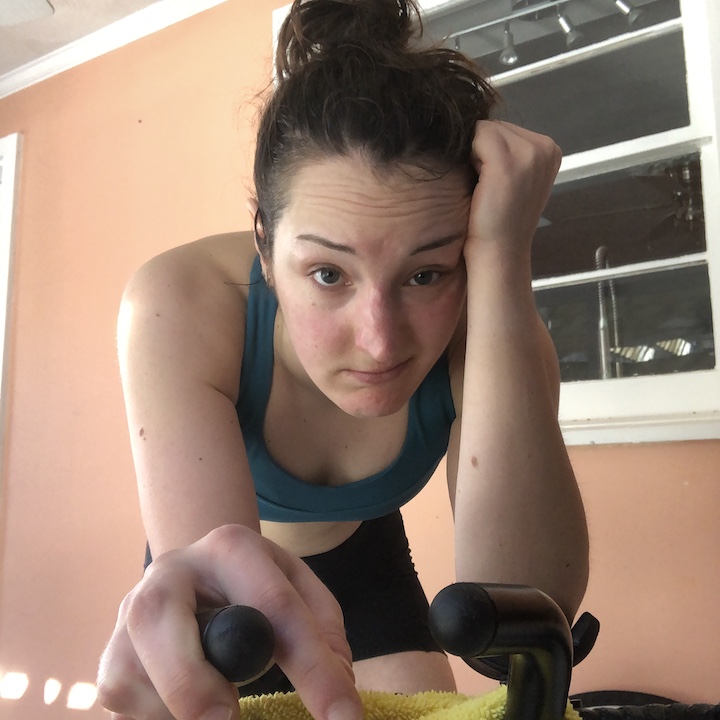
10. You feel burned out
As athletes, we tend to be pretty in tune with our bodies.
Be honest with yourself. Do you feel burned out, physically and/or mentally?
Many of the signs we discussed here could be indicators of burnout, or a combination or compounding of them.
But at the end of the day, listen to your body.
Do you need a break?
A quick breather so you can feel a little better and look forward to your workouts again?
Reducing workout length, frequency, or intensity may not be enough. Especially if you’ve tried this and STILL feel burned out.
The longer you put it off, the longer you might have to rest, and the longer it will take to build back up to where you were.
Give your body the rest it’s asking for, and it will thank you.
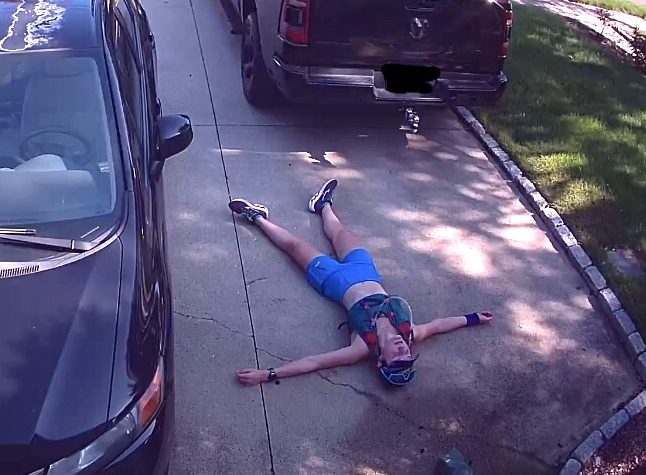
Finally, remember: rest is part of training!
Without it, you won’t become a better athlete.
Hopefully you now have some guidance to decide if it’s time for you to take a rest day.
Take care of your body, and your mind!
Happy training and resting!
-Dina
Dina Grimaldi is a triathlon & nutrition coach who helps athletes reach their goals while finding the balance they need to fit training comfortably into their lives, and who guides and supports those with nutrition or health goals to cultivate a lifestyle of sustainable habits and a healthy relationship with food.

I’m impressed at the number of pictures you have of yourself laying exhausted on the ground. 😆
Good pointers. I try hard to listen to my body, with my chronic fatigue. Thursday I chose not to work out because I was so tired, but felt well enough yesterday. It’s such a balancing act. 👍💪
Haha, there are many more of them. I had to pick and choose which ones to use 🙂
That sounds tough. There’s also nothing wrong with giving it a shot and stopping if you realize the fatigue is too great that day. Or modifying the workout to be less intensity or length. Sounds like you’ve got the listening to your body part down!